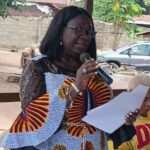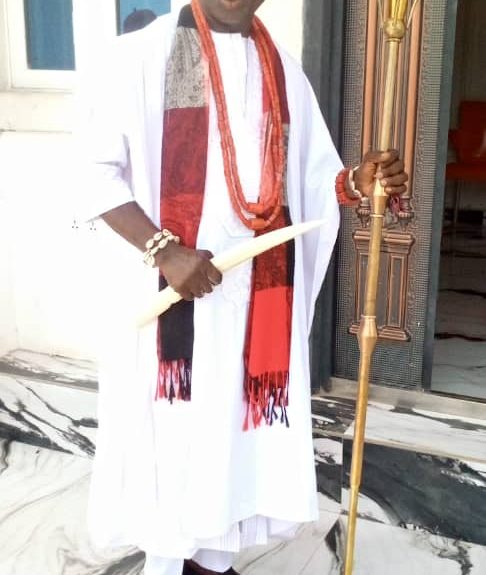– Says, Purveyors Of Falsehood Uniformed
“It is unfortunate that some of our uninformed brothers from Umuna lack historical knowledge are showcasing their ignorance by describing Orlu community as a rural area.
This is not only laughable but a sacrilegious propaganda aimed at distorting the facts in a bid to seek relevance or validate falsehood”.
Orlu community stated this while responding to Umuna’s claim in a statement they issued describing Orlu as a rural area.
Orlu community in a statement they issued to counter Umuna’s claim said, “
The statement further noted that since the issue of claims and counter claims over the ownership of the Orlu Local Government Council Headquarters came up, following the statement Amaifeke made in an address they read at the reception organized for their son, Charles Mbarie, the Executive Gov of Orlu Local Government Area, Orlu has consistently used historical records and events to buttress their points in a bid things in proper perspective and avoid rancour and acrimony.
“The attention of the public was drawn to a publication on the print media of May 13, 2025, where my good friend Comrade Eshiaso sacrilegiously claimed that Orlu Autonomous Community is a rural area. Even though the community wouldn’t want to join issues with face-saving propaganda, or positioning for cheap popularity, but if everyone keeps quiet falsehood may fly and become either contemplated truth or even truth itself. Hence brief insight of the Ancient community cum modern metropolis Orlu”.
They advised the leadership of Orlu Local Government Area to avoid being dragged into a controversial and non-existent boundary war by political merchants who benefit from the crisis situation.
“The best all of us can do for our son, Hon Chris Mbarie now, who we all know as a gentleman is to advise him properly and support him to implement his good programmes and policies for the equitable development of all the communities in Orlu L.G.A.
“Consequently, the propaganda by the author of the said publication claiming Orlu community is a rural area is conflicting with reality on ground and shamefully uninforming to the audience the author was addressing.
It’s show of ignorance, unsatisfying and hard to assimilate.
For anyone to have imagined making such bogus claim in public, it means the person doesn’t know Orlu and its capacity.
Obviously, Orlu is an ancient community, a modern metropolis that forms the bedrock of Orlu senatorial zone. A foundation of one of the senatorial zones of the Federal Republic of Nigeria.
Orlu is also the same Community hosting the headquarters of the Catholic Diocese of Orlu. She is the host to Bishop Shanahan College, which is one of the oldest secondary schools in Orlu zone, Imo state and Nigeria (If not Africa). Definitely, Orlu community can best be acknowledged as not just the focal point but the fulcrum of civilization in Eastern region.
She is both academic and civilization pride to Orlu LGA and that of the senatorial zone cum Imo state.
No rural area has as many secondary schools as Orlu Community has, not even any of her neighboring communities.
Orlu, the enviously purported rural area had at different times hosted about four tertiary institutions. Isn’t it funny that such community, due to malicious grudge is being described as a rural area? Bishop Shanahan College alone at some point produced over 50% of prominent individuals in Orlu LGA, (and high percentage at the zonal level) Umuna and Amaifeke indigenes inclusive. In fact, over 90% successful individuals from Umuna today, either graduated from Bishop Shanahan College Orlu or Girls’ Secondary School Orlu. It may also interest you to note, former governors, senators, politicians of all cadre, renowned captains of industry, technocrats, resourceful persons in all professions, bunch of reliable academics, theologians of high degree or cadre, name them are products of this centenary college.
The graduands are key players in today’s society. Show me any responsible and resourcefully placed individual in the society today within Orlu LGA and to an extent Orlu zone and i will show you a graduand of either Bishop Shanahan College Orlu or Girls’ Secondary School Orlu. May be the premises of these great institutions are not encroached today, because government houses weren’t built on them and no royalties paid accurable from them. Orlu has similar or even closer neighborhood with Umuna community within Girl’s Secondary School premises/area than it has within Local Government Headquarters.
^There are indications that these unnecessary boundary struggles are all about touting for payment of royalties from government.
If Orlu is a rural area, as claimed by the President General of Umuna, one wonders why it took our neighbors over five decades (fifty years) to have a secondary school after three standard secondary schools were already established in Orlu community. Can the author explain why it took Umuna that long to begin dreaming of establishing the only one they now have which is also substandard, and deteriorated into a makeshift state till date.
All these facilities were readily available for them through the proximity of the ones in Orlu community.
With the absurd claim of that Orlu with all her facilities is still rated a rural area.
Maybe for him, the pretense to struggle and drag what doesn’t belong to one can possibly make the brain think that a ‘rural’ area usually has as many facilities as possible and develops faster than ‘urban cities’ and ‘and self acclaimed metropolis^
One still wonders how our brother got the courage to classify Orlu community as a rural area. It is certain that ven his kinsmen will disagree with him on this absurd claims.
For those doubting the authenticity of ownership of the area under discussion i will still refer you to the below paragraph.
As I had also earlier advised in my previous article on this topic. I quote, “On a good authority that, Chief Orisakwe of Orlu Community, Chief Anazor of Amaifeke and Chief Nwosu of Umuna signed a very important document in 1920 as it concerns the topic under discussion”. I now ask our sister communities at this point, to revisit their respective archives for informed information”.





